Table of Contents
- Buying backlinks poses real risk—Google’s SpamBrain can devalue or penalize manipulated links.
- Common red flags include exact match anchors, “Write for Us” pages, AI content, and link pricing pages.
- High-quality news backlinks cost $1,500–$2,500; digital PR often delivers better ROI per link.
- Build links via digital PR, high link intent content, or expert quote pitches to reduce algorithm risk.
- Diversifying tactics ensures rankings remain stable if paid links are devalued.
We know links work.
Study after study has shown a high correlation between DA/DR, organic traffic, and ranking compared with the number of referring domains.
We’ve even shown the spikes in organic traffic from link acquisition in our digital PR and SEO analysis.
Given that, just forking over cash for backlinks to get value fast seems appealing, right?
Not so fast.
If you are considering buying backlinks, know that there is risk involved.
The big problem with buying backlinks is that it has become a marketplace complete with shady link dealers who prey on those with less SEO knowledge.
So, I’ll help you understand the risks of buying backlinks, how to avoid the common pitfalls, and help you compare the costs of buying vs generating your own naturally.
Why Buy Backlinks
Before I answer why buy backlinks, I should explain why many sites exist to sell them.
In SEO, a cycle has existed. Whenever a link-building tactic is exploited, Google updates its algorithm to level the playing field.
This has raised the value of a link.
Simultaneously, most websites are constantly bombarded with outreach asking for links (often very bad outreach—see below.)
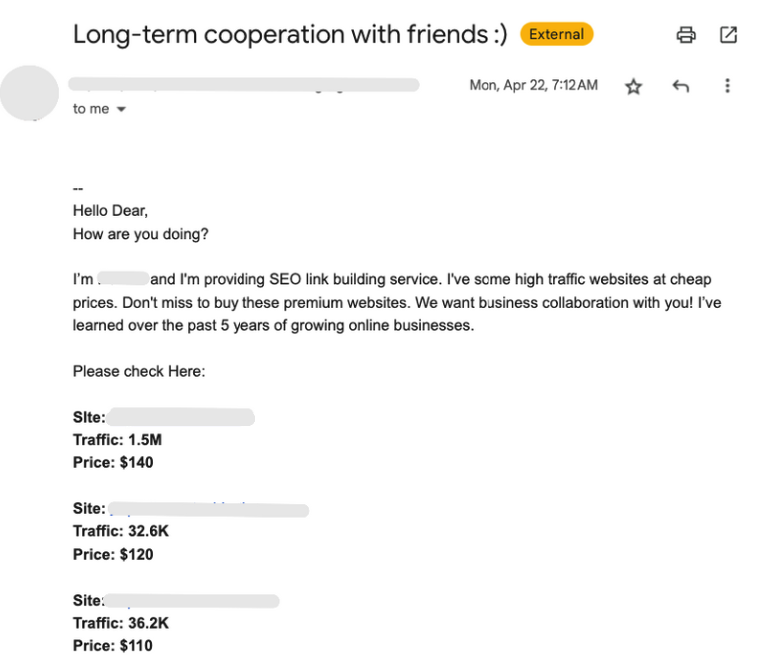
So, sites realized that they could make a few bucks on the side by selling backlinks.
However, as you’ll see later, the newest Helpful Content Update once again leveled the playing field by penalizing many sites that only exist to sell links.
After scouring Reddit and talking to customers, I can categorize the four reasons many consider buying backlinks.
Let’s discuss the reasons (and why they might not necessarily matter as much as you think.)
1. Quicker than Building Naturally
For many sites—especially new ones—buying backlinks is viewed as the quicker and easier way to increase their ranking. This is probably the most common reason people buy.

I don’t necessarily agree with this since a brand-new site can create and pitch content as quickly as established sites.
However, it is difficult to build links to specific product/service pages, which is often why people build links. (As you’ll see later, this is often a dead giveaway that a site sells links.)
Later, I’ll show data about passing link values through pages to generate links to your priority pages.
2. Difficult Niche to Build “Naturally”
Some businesses play in “boring” industries.

I get it. I gave an entire presentation on this topic at SearchLove back in 2019, and I’ve built content in considerably tricky industries.
My take on this is that if competitors are having success, you should be able to succeed, too. I’ll get into this later as well.
3. Just Hitting Numbers
Many agencies, consultants, and in-house SEOs are accountable for a set number of links each month, quarter, or year. These link quotas come from stakeholders and clients who may or may not know better.

If you work with a junior team, freelancers with no real stake in the company, or a time-poor staff, they may feel the crunch to hit quantity over quality.
I’ve seen it all and have felt the pressure as a link builder. But, as I discuss in my post, you may not need as many backlinks as you think.
4. Your Competitors are Doing it
I was on a link-building panel at Brighton SEO, and this issue was repeatedly voiced in the audience Q&A.
A new study from Editorial.link also found that 92% of (mainly) SEOs believe their competitors are buying links.
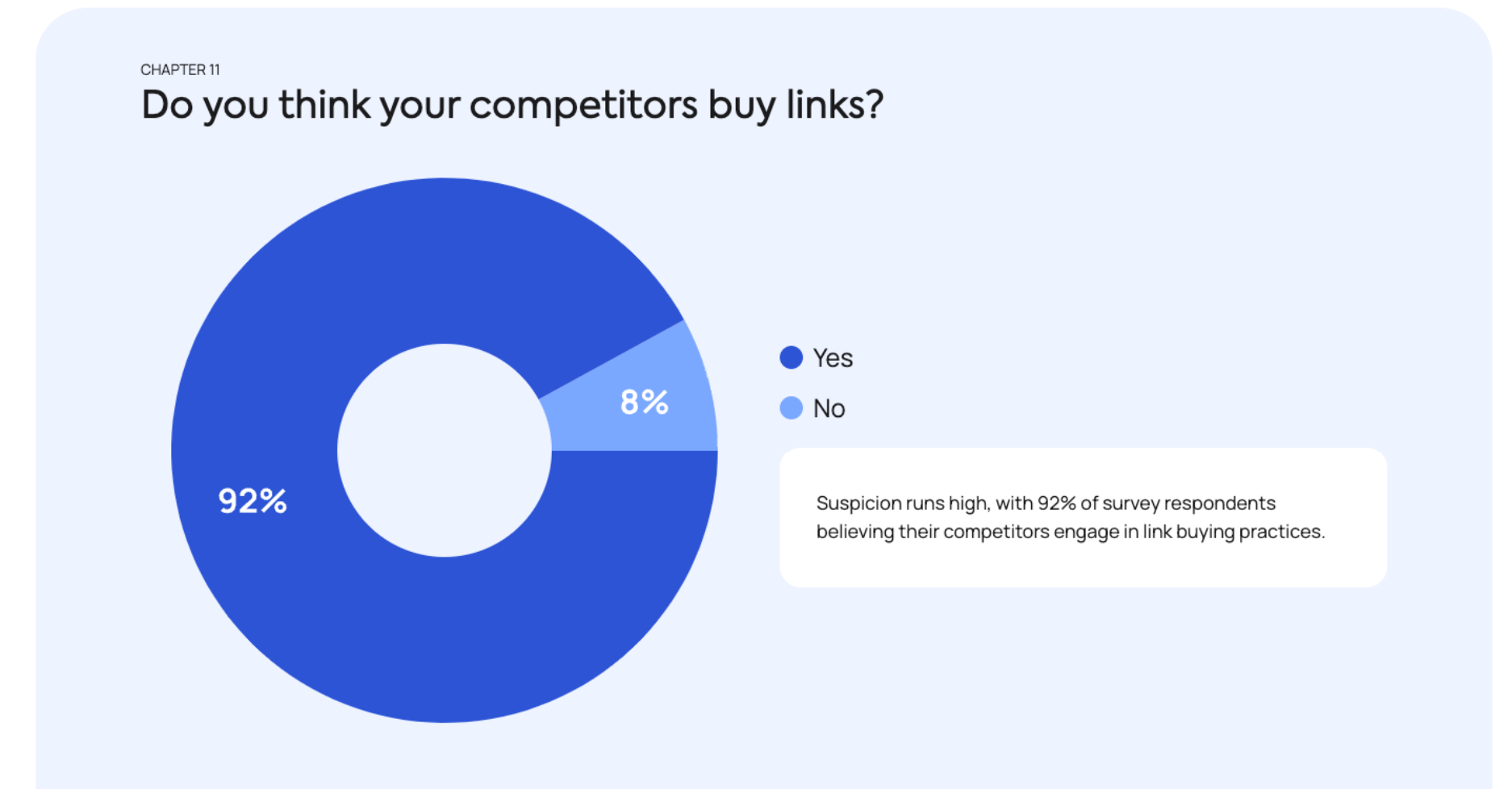
It can be tempting to join the link-buying bandwagon with competitors to keep pace. But, as I mentioned on the panel, evaluating the impact of the links your competitors are getting is crucial.
Most sites where you can buy placements are not quality links.
If they are, then that’s a different story. But strategically, it shouldn’t matter.
If you are in second place and your competitor is buying links, then buying links will only help you maintain second place. The mindset should be to do bigger and better things.
Now, all of this might sound like I am anti-buying links. Really, I am anti-risk—especially when money is involved.
And, like I said at the beginning, there is a big risk involved with buying links.
Here is a great video conversation I had with SEO expert, Ian Howells about the topic:

I highly recommend watching it if you are interested in buying links.
What’s the Risk of Buying Links?
If you’re caught, Google may devalue your links or, in extreme cases, penalize your site.
Google is trying to prevent sites from manipulating their algorithm.
In my time in digital marketing, they have released three major algorithm updates that have devastated businesses: Penguin, Panda, and recently, the Helpful Content Update.
In all cases, they have addressed manipulation with striking blows.
Their Spam Policies documentation expressly highlights “buying or selling links for ranking purposes,” including “exchanging money for links or posts that contain links.”

So, let’s get into some glaring signals that might determine whether a site is selling or buying links.
But How Does Google Know If You Are Buying?
One way is an AI-based system called SpamBrain.
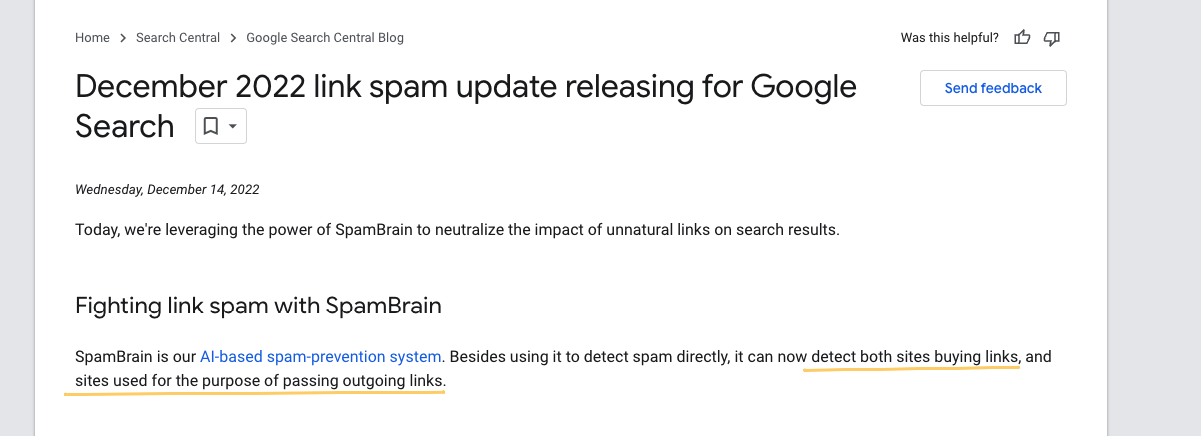
So, both the sites selling the links and the sites buying links are at risk.
Will those links hurt you?
Yes and no.
Mostly, the links simply won’t count, or as Google puts it, “any credit passed by these unnatural links are lost.”
Ultimately, you’d lose all the money spent and any traffic to pages propped up via those links.
2024 Link Spam Update
In 2024, Google announced a Link Spam update that was relatively overlooked among the larger story of the Helpful Content Updates.
This link update, powered by SpamBrain, seemed to impact many sites that showed signs of negative link signals. We analyzed 50 of the best bootstrapped SaaS backlink builders and found that 28 seemed to be hit by the Link Spam Update in June 2024.
But how does SpamBrain work? And are there any other ways that Google can tell if a site is buying or selling links?
We’ll cover that next.
How to Tell if a Site is Buying or Selling Link Placements
Based on patterns, Google (and SpamBrain) can tell what a purchased link looks like in obvious and less apparent ways.
Reporting Links
For one, Google has a way for users to report spam links manually.
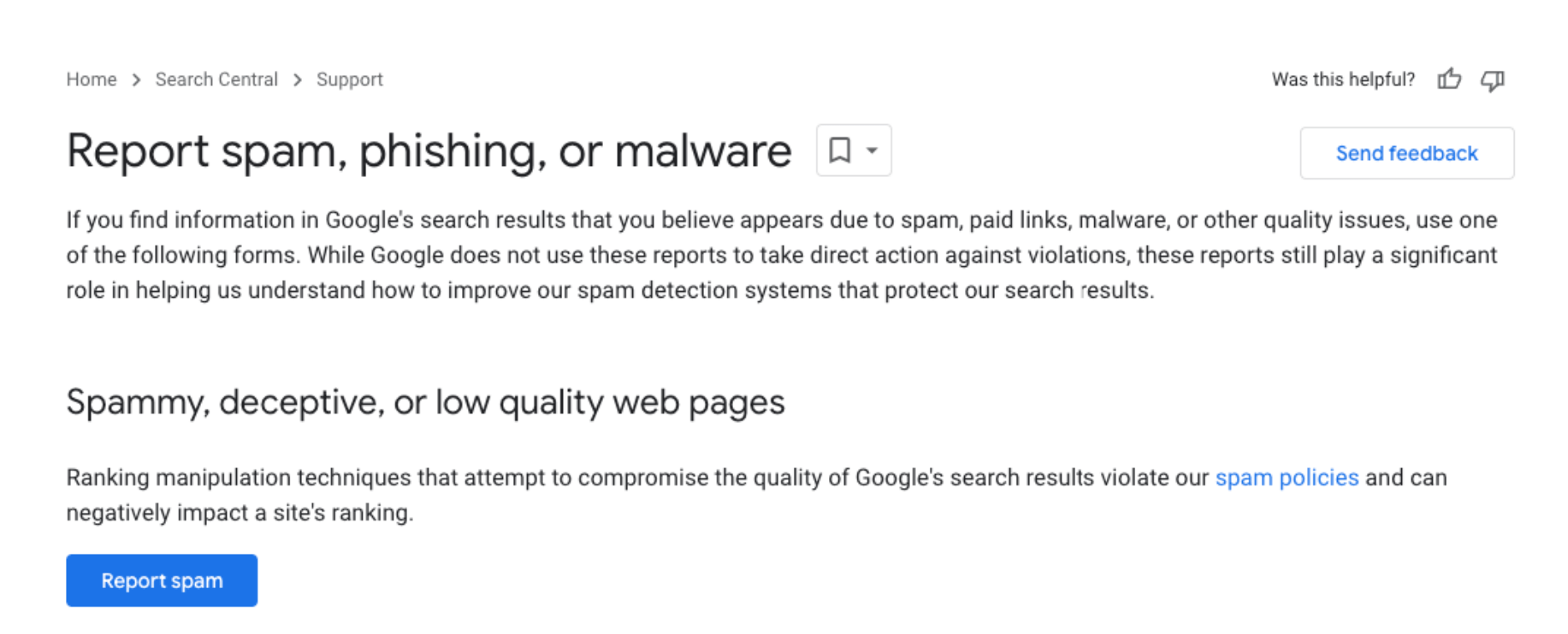
I haven’t seen any data or documentation on what happens when spam is reported, but we can assume that Google devalues them the same way mentioned in the SpamBrain documentation.
Site Lists Prices
Although it is a less common practice, some sites overtly list prices for guest post placements and link placements.
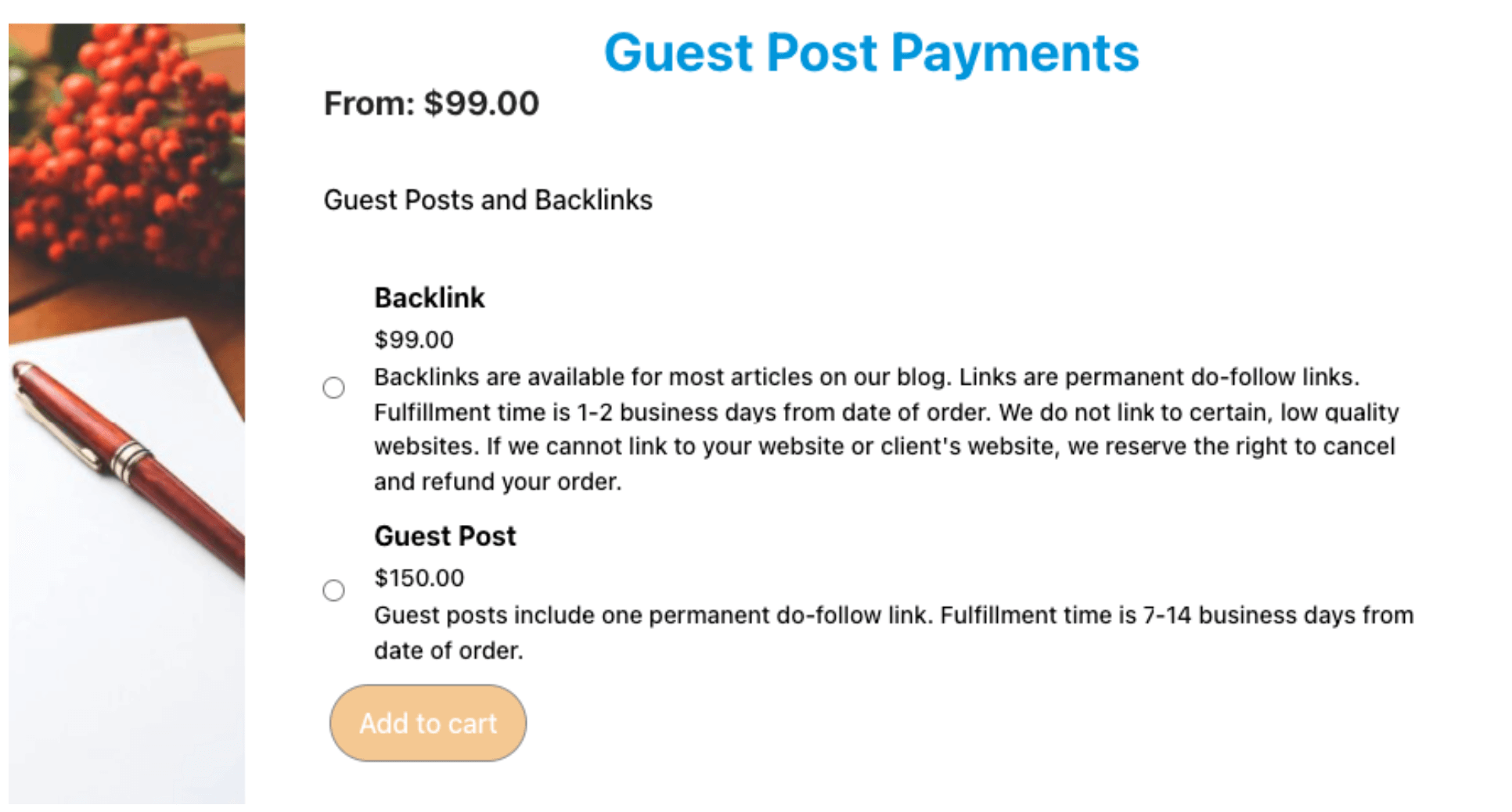
These are dead giveaways for anyone looking for sites that buy or sell links, and they’re one of the first things I’d look for to determine if the site was worth buying a link on.
Site Appears on Databases or Lists
You should be wary about the link’s value if the site appears on a database or a list.
These could be quickly reported or devalued in bulk by Google.
As mentioned in my post about guest blog spreadsheets, I once saw Google’s John Mueller comment on a LinkedIn conversation saying, “Thanks for the link” to a shared list of guest post sites.
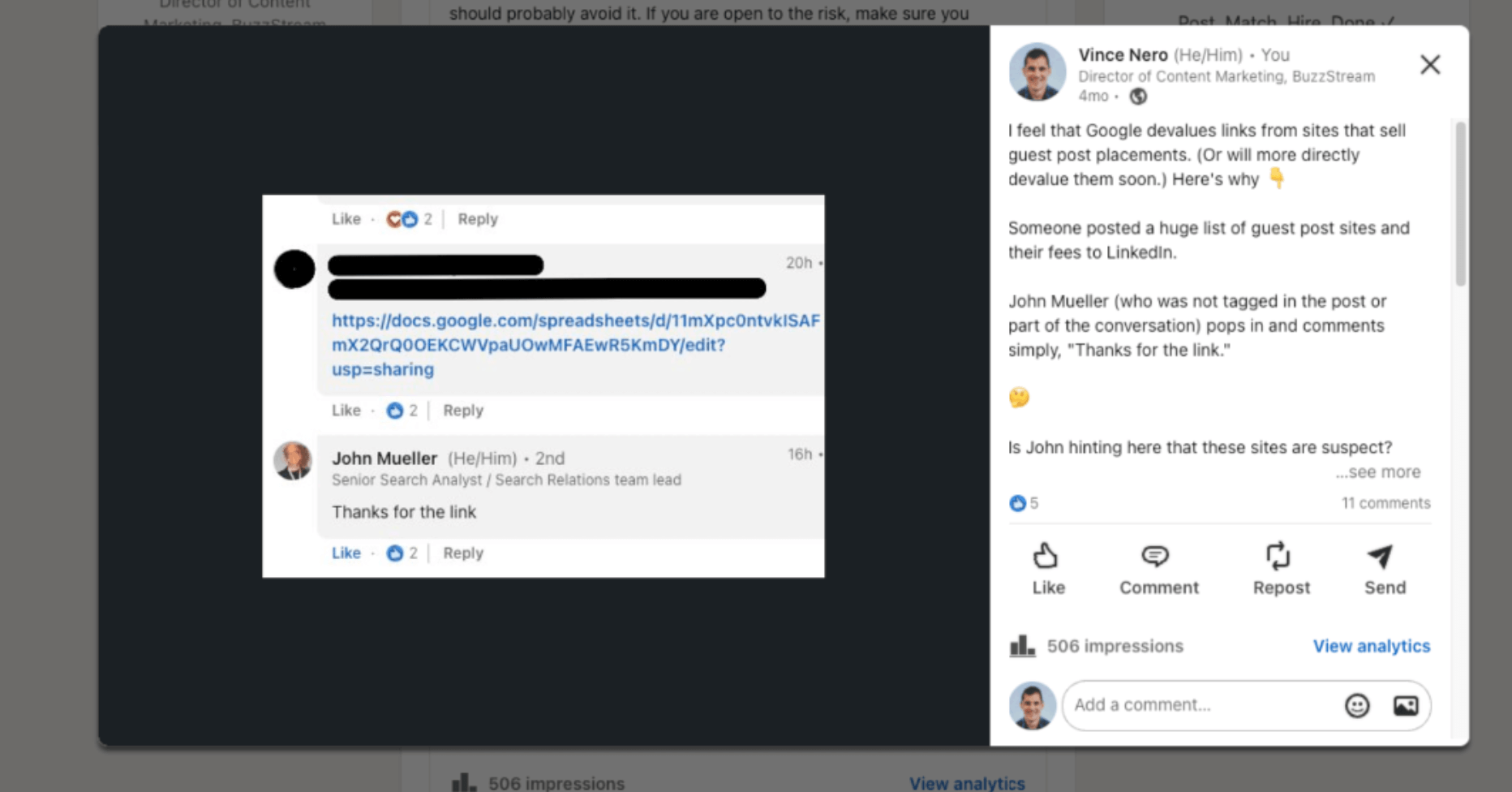
This tells us that they are actively monitoring and most likely devaluing the links coming from them.
Some other signals, like traffic dips, can be overwhelming if you don’t have access to an SEO tool or aren’t super savvy in analyzing metrics.
So, let’s look at some quality signals you can see without tools.
Exact Match Anchors
When evaluating sites like the ones above, exact match anchors are most commonly used within the text. For example:
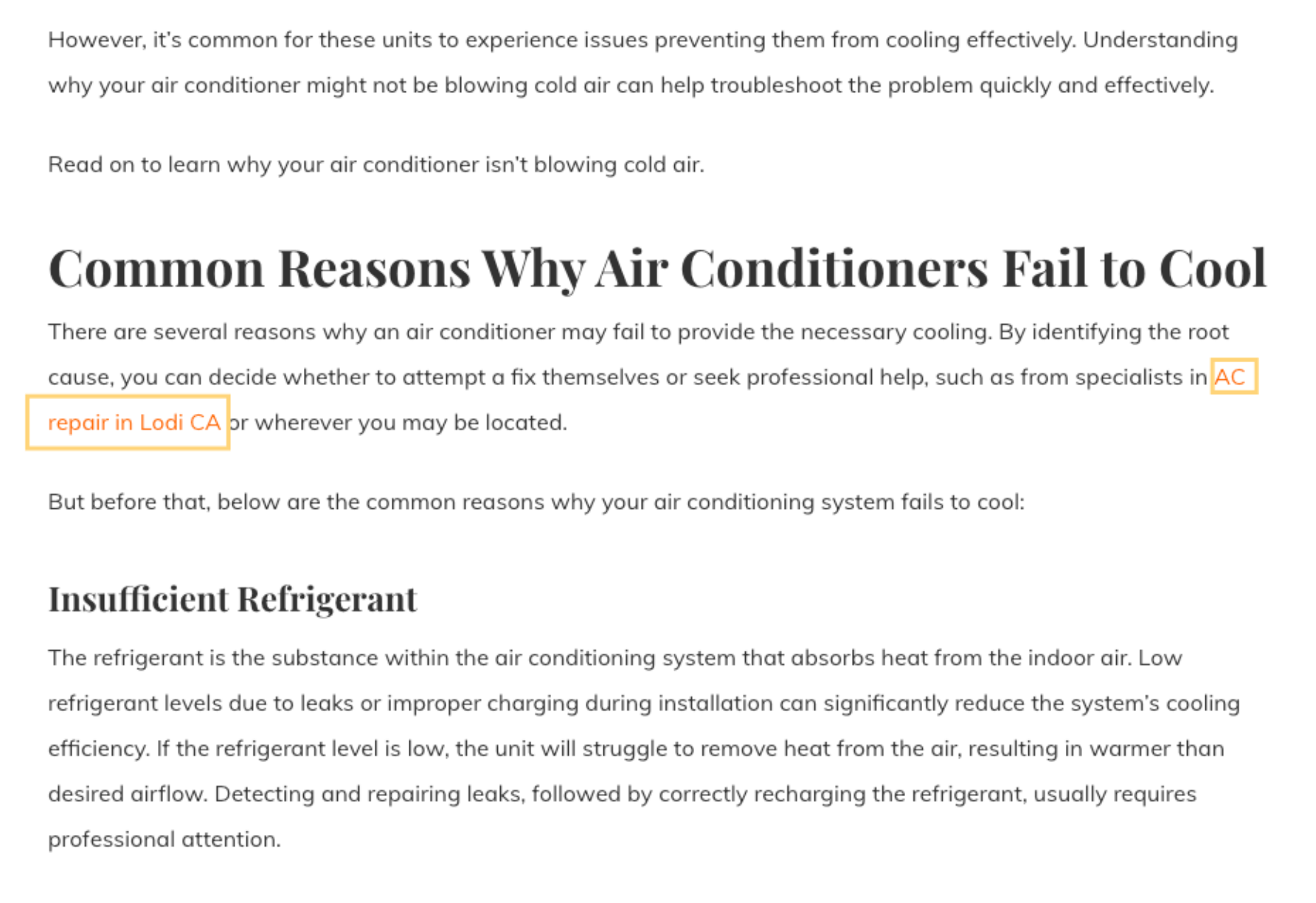
Or another one:

These exact anchors are signs that a less-SEO-savvy marketer has placed these links to get specific pages to rank.
We know from our podcast with Nate Matherson of Positional that varied anchor text really matters.
Noticeable “Write for Us” Pages
Just because a site wants to bring together a collection of great writers around the web doesn’t mean it’s spammy.
Unfortunately, that’s not what most of these sites are.
An obvious red flag for me is the “Write for Us” link found in the navigation bar.
Most of these sites look very similar and use the same WordPress themes:

Strategically speaking, sites that accept anyone and everyone’s content aren’t as valuable.
Heavy AI Content
Many sites relying on AI content only get hit by the Helpful Content update.
While having AI content alone doesn’t mean the site buys or sells links, providing no value won’t help rank either.
For example, here is a snapshot from a link buying site that is 100% AI written based on an AI-content detector called Copyleaks.
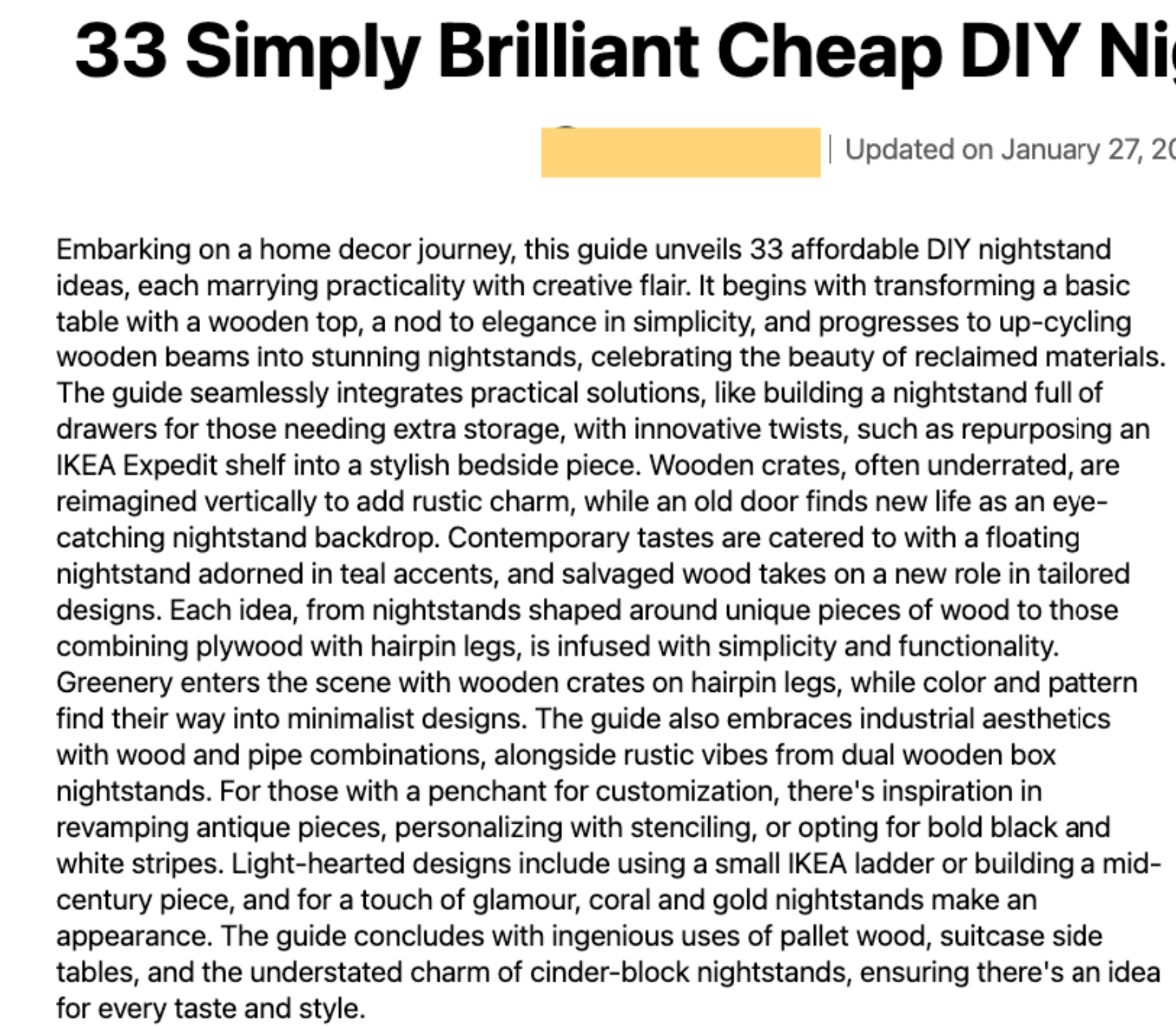
The content isn’t valuable, so I wouldn’t want my brand associated with it—especially if it is potentially affected by an algorithm update.
Too Many Topics
Not all sites that cover many topics engage in link selling, but the vast majority of generic “news” sites are built with this in mind.
It enables sites to sell link placement on a variety of topics.
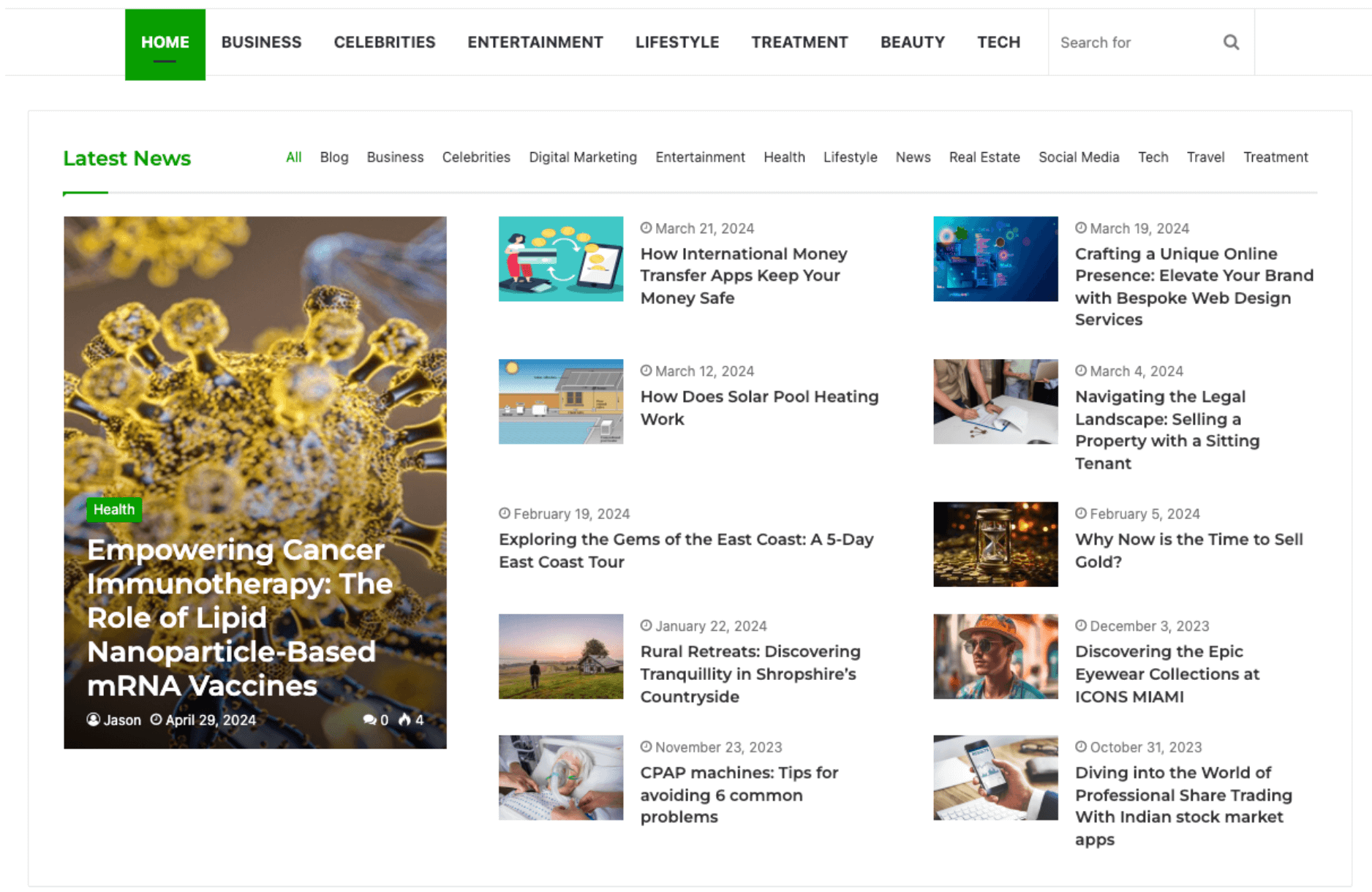
In the case of the above, you can see posts about solar pool heating services, legal services, to CPAP machines.
These articles are clearly created to help insert a link to a service or product page.
Cost of a Quality Link in 2024
The value of a backlink has risen in 2024. This isn’t only due to Google’s harsh reprimands of sites that only aim to buy and sell links. (I’m looking at you: Google Sheets guest post sites.)
But, with more people doing digital PR and journalists getting laid off, we are running into an inventory crisis.
And I’m no business major, but I know that less inventory and more buyers means prices go up.
The cost of a quality link right now is at least $1500. But, it indeed varies in each industry. The narrower and more specific the sector, the more you’ll likely have to spend.
You also need to consider the site’s authority. On average, the higher the authority, the more you’ll have to spend.
Based on my analysis of guest post costs, based on a database of 26,000 websites, here is the quality breakdown:
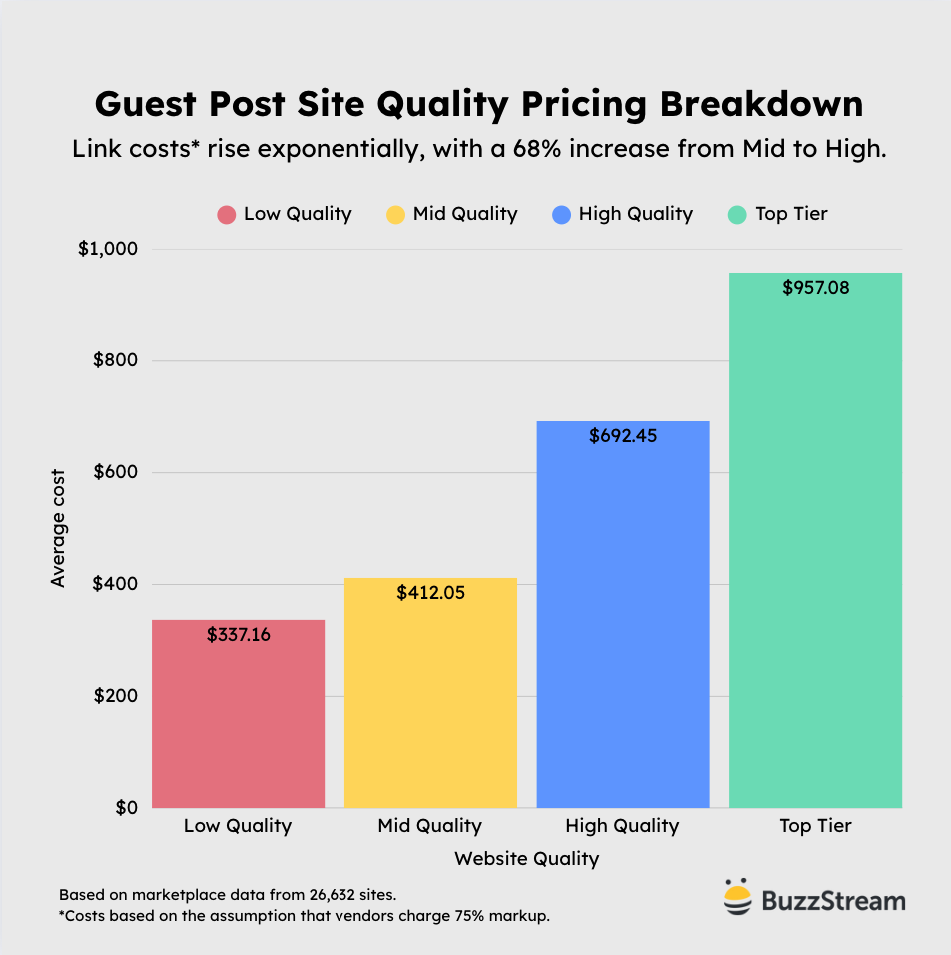
Furthermore, many infer from the leaked Google documentation that links from areas on a site that get a lot of clicks are worth more than others.
As Rand Fishkin put it in his analysis of the leak:

Freshness is also a factor mentioned in the leak.
This all points to high-end news links being the best links to acquire.
Can You Buy a High-End News Link?
Yes, but most will and should be rel=nofollow and rel=sponsored (based on Google’s guidelines). The nofollow tag will essentially prevent Google from valuing them as highly, if at all, and the rel=sponsored tag lets Google know that money was exchanged for a link.
Someone once randomly offered a Forbes link for $8,000.
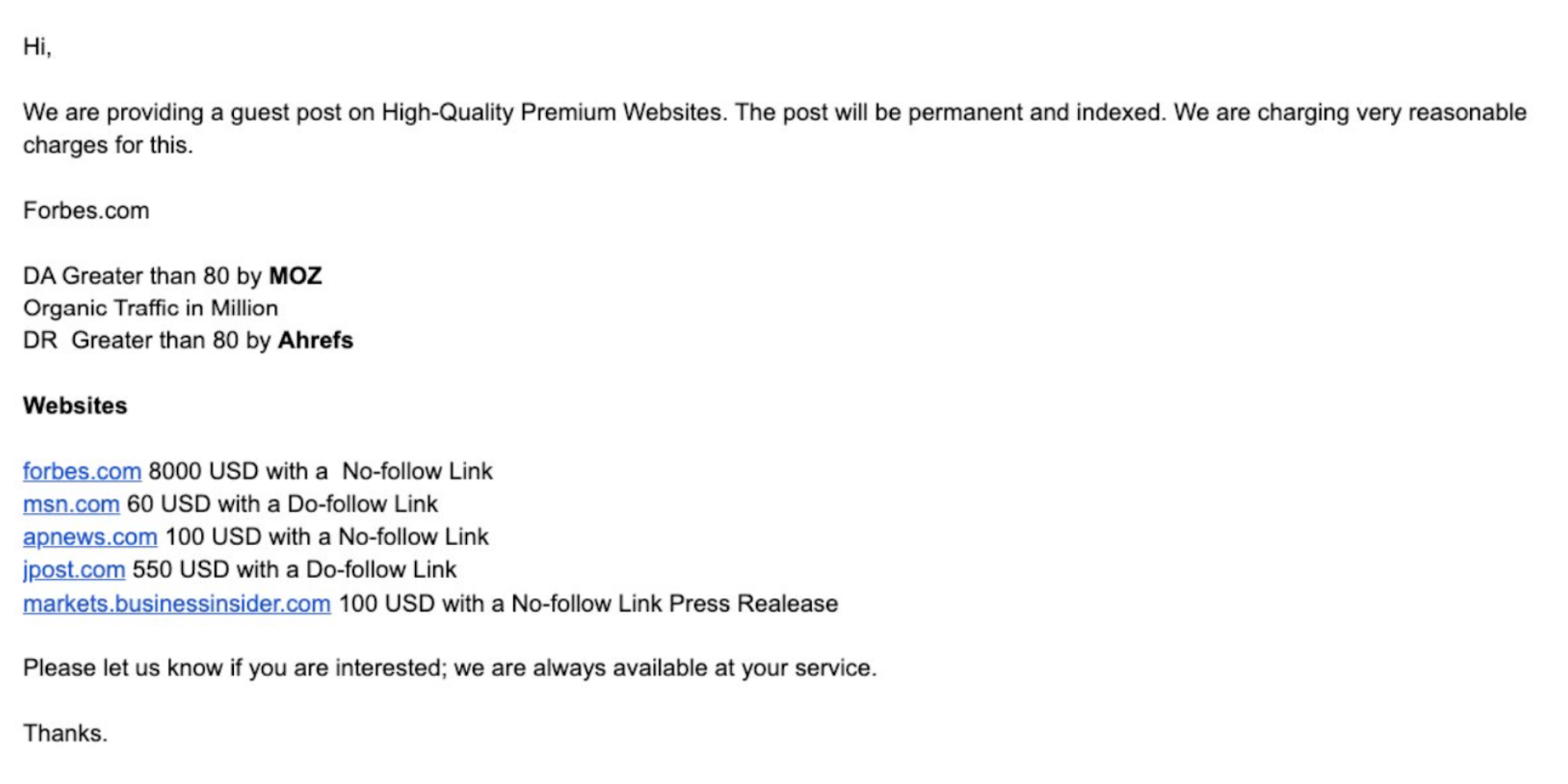
I honestly don’t know the going rate for Forbes, but that cost is outrageous.
You can look at some online databases to understand the cost of a high-end news link, but our link-building stats post found it to be ~$1,500-$2,500.
In the next and last section of this piece, I’ll show you why it’s more cost-effective to invest in your own content for link building.
Buying vs Building: Cost-to-Benefit Analysis
On the lowest end, let’s assume that buying a high-quality link from a news site costs $1000.
A typical content-led digital PR campaign cost from an agency may be anywhere from $5,000-$15,000, so let’s say $10,000.
Even modest campaigns targeting high-end news can generate about seven links on average.
In this scenario, you are purchasing seven links for $10,000.
This puts your cost per link at $1,428.
Even if the campaign costs $15,000, you are at $2,142 per link, which is reasonable.
Our digital PR and SEO analysis shows that high-quality news links can drastically increase organic traffic.
Look at the influx of organic traffic (in orange) when the links come in (blue):
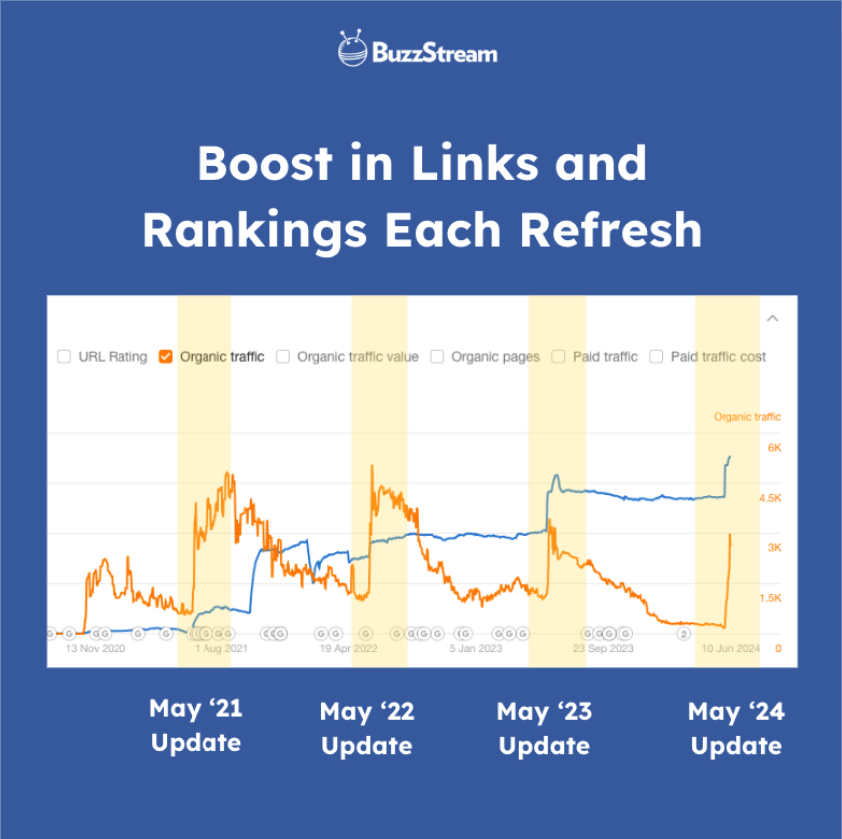
Alternatives to Buying Links
As I mentioned initially, the alternative to buying is building links naturally.
The three main ways I recommend doing this are by:
- Creating and pitching content for links (aka Digital PR)
- Creating content with high link intent
- Pitching quotes
Building Them Through Digital PR
If you’re unfamiliar with the concept, I recommend reading this post about digital PR.
Many fabulous agencies provide digital PR services, but it is totally doable yourself.
The strategy is to generate links through newsworthy content or quote pitching.
Our digital PR examples post outlines a lot of the strategies, but common ones include:
- City studies like Smart Asset’s Where Millennials Are Moving. This post has gained over 150 LRD (linking root domains).
- Data studies like BuzzBingo’s Profanity in Film. This piece has over 800 LRD over time.
In all of these cases, data is your best friend. But you can also tell engaging stories with visuals or have fun with interactive content.
- Engaging visuals like Online Doctor’s Perceptions of Perfection. They’ve gained over 400 LRD from major publications like DailyMail, Huffington Post, and the Telegraph.
- Just Park’s Reaction Test interactive game has over 1,500 LRD since publishing.
Content With High Link Intent
If your site has an authority score over DR/DA 50, you should be able to rank for content without much manual link building (or buying). I’m not talking about major, highly competitive keywords.
However, for medium competition, where you have a lot of relevancy, you can create content that generates links over time if you target keywords with high link intent.
Link intent keywords are those that journalists seek out when doing research. Terms like “statistics” or “trends” are great examples.
For example, this post on cybersecurity statistics from TechTarget has gained over 500 LRDs since it was published in 2020.
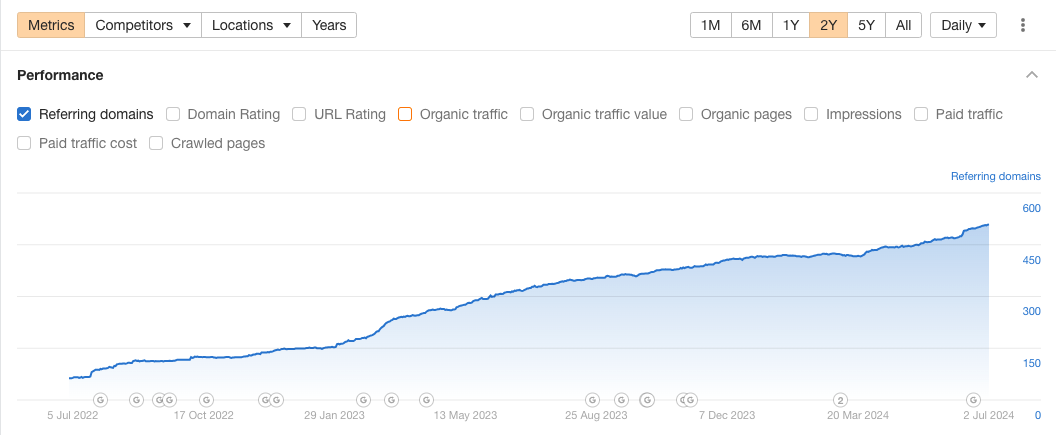
Pitching Quotes
There are several ways to pitch quotes. Platforms like H.A.R.O. (Help a Reporter Out) are areas where you can gain links from high-authority news sites.
For example, Dan Green, CEO of Homebuyer, used HARO to connect with a journalist who was writing this article for Newsweek. And with a quick 10 minutes of writing and pitching the quote, he gained a DR 91 link.
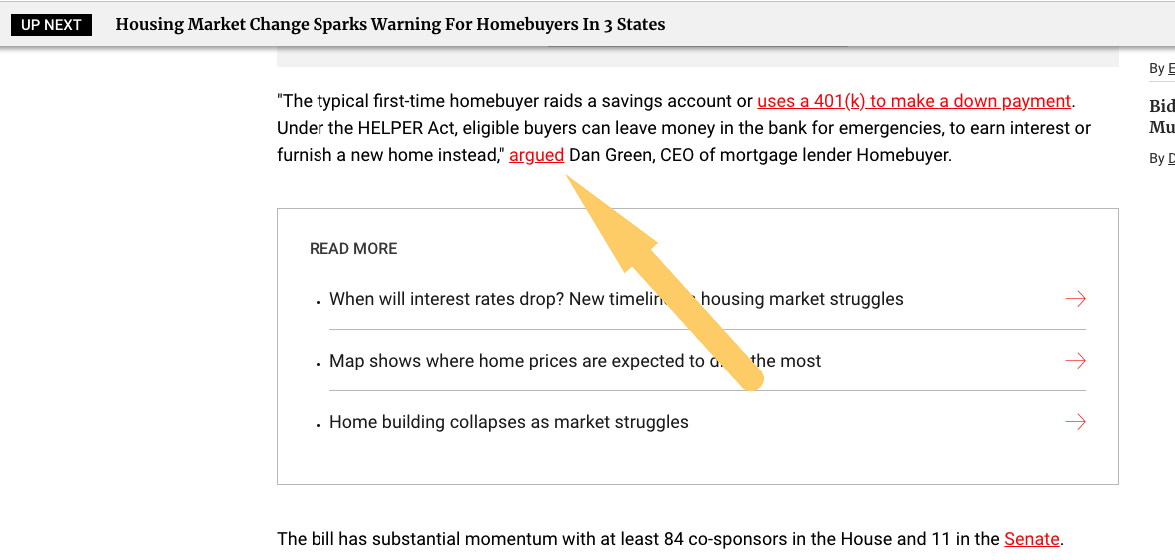
Alternatives to HARO are Source of Sources in the US only. I prefer the platform Qwoted which seems to be less noisy than HARO.
There’s #journor_request on X, which collects requests from journalists (mainly in the UK).
Is the Risk Worth It?
Personally, I wouldn’t say I like buying links. I’ve done it, but it always feels like I’m playing with fire. There are always better options, especially with brand-new sites.
I feel the same way about link exchanges. They have less risk if you do them correctly and sparingly, but I’ve seen them get manipulated heavily recently.
But who cares what I say!
Ultimately, you should be able to answer this question: If Google decided to devalue all the links you bought tomorrow, would you lose all of your rankings?
At the end of the day, link building, digital PR, and SEO are all just pieces of the marketing mix.
A sound strategy does not lean too heavily on one tactic.

 End-to-end outreach workflow
End-to-end outreach workflow



 Check out the BuzzStream Podcast
Check out the BuzzStream Podcast







